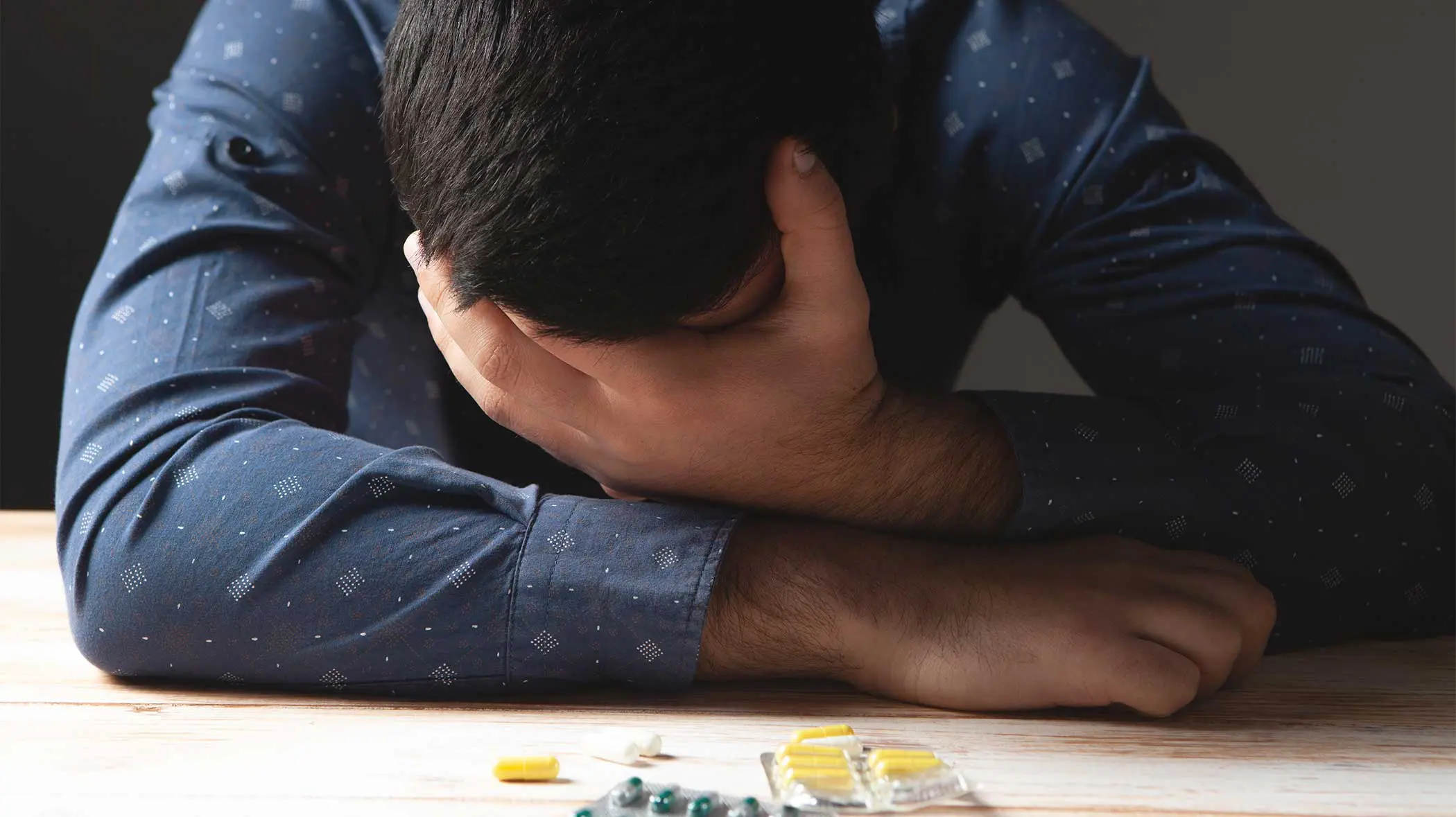
Benzodiazepines are a class of sedative-hypnotics that are typically prescribed for the treatment of insomnia, anxiety disorders, seizures, and panic disorder.
Short-term side effects, such as sleepiness and impaired coordination, can occur.
Taking them in any way other than prescribed, such as taking higher doses or combining benzodiazepines with other drugs, can enhance these effects.
What Do Benzodiazepines Do?
Benzodiazepines act in the body as central nervous system depressants, which are known to slow down activity in the brain and spinal cord.
This can affect:
- motor reflexes
- coordination
- cognition
- mood
- breathing
- vital signs
Benzodiazepines have also been found to enhance the effects of GABA, a neurotransmitter that can block or inhibit brain signals associated with anxiety.
What Are The Short-Term Effects Of Benzodiazepines?
Benzodiazepines, commonly referred to as “benzos,” can be misused for their sedative effects, and their ability to enhance the effects of other depressants like heroin.
Depending on the type of benzodiazepine taken, some of these drugs can produce effects within minutes and last for several hours. But not all of the effects of benzodiazepines are desirable.
Misusing benzos can lead to physical, mental, and psychological side effects, some of which can be unpleasant and disruptive to a person’s ability to work, attend school, or accomplish other daily tasks.
Short-Term Physical Side Effects Of Benzodiazepine Abuse
Benzodiazepines can be taken by mouth or crushed and snorted for faster effects, which may kick in within minutes of ingestion, depending on the type of benzodiazepine drug taken.
Physical side effects of benzodiazepine abuse can include:
- drowsiness
- headache
- nausea and vomiting
- constipation
- dry mouth
- weakness
- impaired coordination
- blurred vision
- joint pain
- changes in sex drive
- difficulty urinating
Taking high doses of benzodiazepines, or mixing them with other drugs, can affect the strength and duration of these effects. Some effects may last hours, others for only minutes.
Short-Term Mental Side Effects Of Benzodiazepine Abuse
Benzodiazepines slow activity in the brain and can help relieve nerves and acute feelings of panic. But they can also have effects on cognitive functions such as mental clarity and memory.
Benzodiazepine abuse may cause:
- mental fogginess
- confusion
- difficulty concentrating
- short-term memory loss
- changes in appetite
Benzodiazepine misuse can have negative effects on a person’s ability to think clearly and concentrate on tasks. This may affect work performance, grades, and interactions with others.
Short-Term Emotional Side Effects Of Benzodiazepine Abuse
Benzodiazepine abuse can have negative effects on mood, some of which can be triggered by the drug use itself, or by the circumstances surrounding a person’s substance abuse.
Common emotional and psychological side effects include:
- mood swings
- depression
- irritability
- dull effect
- decreased motivation
Benzodiazepine abuse can also negatively affect people with mental illness, by exacerbating symptoms of conditions such as depression, anxiety, psychosis, and post-traumatic stress disorder (PTSD).
Acute Dangers Of Benzodiazepine Abuse
Benzodiazepine abuse isn’t risk-free. In the short-term, serious and potentially life-threatening consequences can occur, particularly when taken in high doses or with other substances.
Benzodiazepine Overdose
Taking excessive doses of benzodiazepines alone or with other drugs can lead to overdose, which can affect breathing, heart rate, level of consciousness, and cognitive function.
Although rarely fatal when taken on their own, benzodiazepine overdose can be fatal if taken in combination with other depressants, such as alcohol, opioids, or sleep medications.
Read about the signs and symptoms of benzodiazepine overdose.
Risk Of Falls And Injury
Benzodiazepines are known to cause dizziness, weakness, and drowsiness. Misusing these drugs alone, or with other depressants, can exacerbate these side effects and increase the risk of injury.
Side effects of benzodiazepines can increase the risk for:
- falls
- slipping
- motor vehicle accidents
- fainting
- blacking out
People of older age and those who take high doses may be at an especially high risk for injury. Mixing benzos with alcohol or other drugs can also increase these health risks.
Forming A Benzodiazepine Dependence
Taking benzodiazepines for more than a few weeks can result in drug tolerance, which requires taking higher doses over time to feel the desired effect.
Physical dependence can also occur. This is when the body becomes reliant on the presence of a drug in a person’s system, resulting in withdrawal with reduced or stopped use.
Although dependence is generally an effect of chronic use, misuse of benzodiazepines can speed up the process of developing severe dependence.
What Are The Long-Term Effects Of Benzodiazepine Abuse?
Chronic benzodiazepine abuse can result in a number of physical and mental health-related complications, including potential brain damage, thoughts of suicide, and complications during pregnancy.
Read more about the long-term effects of benzodiazepines.
Call Today To Find Treatment For Benzodiazepine Abuse
Millions struggle with prescription drug abuse each year. If this describes you or a loved one, you’re not alone. Treatment options for benzodiazepine abuse may be available near you.
For more information, call our helpline today to find an addiction treatment program for yourself or a loved one.
Addiction Resource aims to provide only the most current, accurate information in regards to addiction and addiction treatment, which means we only reference the most credible sources available.
These include peer-reviewed journals, government entities and academic institutions, and leaders in addiction healthcare and advocacy. Learn more about how we safeguard our content by viewing our editorial policy.
- U.S. Food & Drug Administration (FDA) — XANAX (alprazolam tablets)
https://www.accessdata.fda.gov/drugsatfda_docs/label/2011/018276s044,021434s006lbl.pdf - U.S. National Library of Medicine: MedlinePlus — Alprazolam
https://medlineplus.gov/druginfo/meds/a684001.html - U.S. National Library of Medicine: PubMed — Management of benzodiazepine misuse and dependence
https://www.ncbi.nlm.nih.gov/pmc/articles/PMC4657308/


